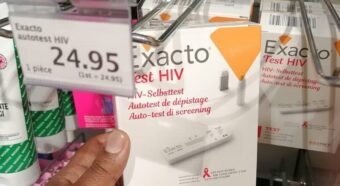Roadmap for a productive partnership
- March 16, 2018
- Non classé
- By Armelle Nyobe

Last Monday, January 12, the UNAIDS West Africa Regional Office hosted a high-level meeting with the ACB to lay the groundwork of a long-term collaboration and partnership between the two organizations. For Dr. Djibril Diallo, Regional Representative, this upcoming collaboration will help to enhance and improve the African participation and voice within the Global Fund and, importantly, ensure the Africa region creates the greatest impact against the HIV epidemic.
Africa bears the biggest burden of the three diseases and receives nearly 70% of the financial resources from the Global Fund. The challenges remain huge the partnership between the two organizations will ensure Global Health investments against the HIV epidemic in Africa are optimized for greater impact. WCA in particular remains a more critical region if the fight is to be won. Compared with East and Southern Africa (ESA), WCA has a lower absorptive capacity and, in terms of the 90-90-90 targets, is at 45-35-25. As a result, the region’s absorptive capacity has not been that good either. UNAIDS, in partnership with the African Union, launched the Catch-Up Plan for WCA. The plan is designed to fast-track WCA’s attainment of the 90-90-90 epidemic control targets, and ensure the region is on track to end the epidemic by 2030.
The partnership will build on UNAIDS’ strong technical expertise and its convening power and the ACB’s mandate to heighten African’s voice in Global Health deliberations. The meeting was aimed at:
- Sharing key priorities from each institution’s perspective related to achieving highest impact of GF investments in countries (governance and ownership, implementation, and sustainability)
- Identify key areas of collaboration at global, regional, and country level.
- Define result-oriented joint roadmap for the next 24 months, including key events for joint-action
- Agree on the modalities of the UNAIDS/ ACB cooperation and for tracking progress of the joint-roadmap
The two institutions agreed to collaborate work on four critical issues:
Review the African Constituencies Governance in order to ensure that Africa’s engagement with the Global Fund taps into and is aligned well with the African leaders through the AU. This will ensure African representatives are mandated and accountable to the African leaders through the AU.
Support on programmatic issues: A number of programmatic issues remain pivotal to Africa’s meeting its targets on epidemic control by 2020 and the eradication goal by 2030. Ensuring countries have credible and accurate data. Ensuring people infected with HIV know their status. Strengthening prevention among key populations (KPs) not in the least including sex workers, AGYW, MSMs, and men whom data shows are being left out. Support rolling out of the differentiated care model. Roll out of ART and initiation of clients, especially in WCA.
Improve the financial contributions: Financial aspect are very important to fight AIDS. In times of plateauing Global Health resources, Africa needs to leverage and maximize the use of the current available resources through diversifying and broadening innovative financing options, increasing domestic financing and absorbing the resources efficiently.
Joint Advocacy: Based on the critical issues identified above, UNAIDS and ACB, working together with other Technical and financial partners like UNICEF, UNHCR, Civil Society, etc., will deepen the discussions on these issues and will launch joint advocacy initiatives.


